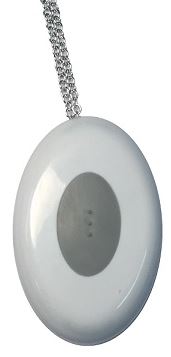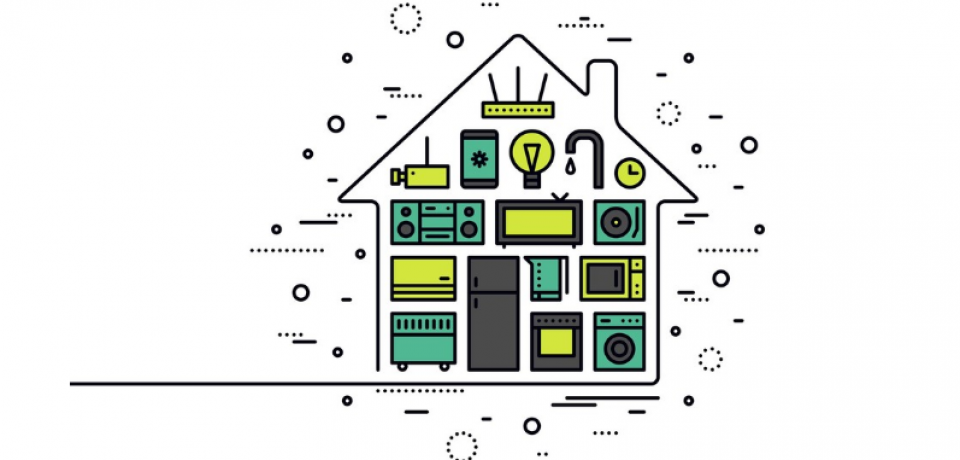Too often, tech is made for younger generations, but I’m excited to see that is changing. With our ageing population and injury from falls being the largest cause of death in over 65 year olds, I’m happy to see more focus on technology and services that can improve the lives of seniors.
Gartner estimates that Internet of Things devices will more than double by 2020 and some of those have to do with keeping people alive and healthy.
Ensuring our senior loved ones can stay living longer in their own home has become easier with the assistance of personal alarms. Many new products are being developed and introduced to the market including fall detector shoes, Google Home, Apple Watch, health monitoring and mobile personal alarms
The Google Home Assistant is a speaker and voice assistant that you can ask it questions and call your friends and family hands free. So in the instance of a fall this could be very useful, as long as you have fallen where the Google Assistant can hear you and active. To install and routinely maintain, the Google Home unit needs a smartphone and the Google Home smartphone app – so depends on the user’s confidence with technology.
The new Walabot Home is a sensor that can penetrate walls and detect motion, such as when a senior has fallen down and needs help. The Sensor says it can model a home in 3D, detect motion, sense a fall, and automatically place a call.
Another product recently hitting the market is the Samsung Bot Care personal assistant. This device can handle an array of health monitoring tasks including tracking medication intake, offer exercise guidance and give daily health briefings.
There is also much hype surrounding the Apple Fall Watch, which has a number of health features and SOS functionality but initially costs $750 AU plus the cost of your smart phone and monthly mobile plan. The fall functionality on the watch can be difficult to trigger as you need to land on a surface very hard without breaking your fall (which is the same issue with all fall detection technology).
You will also need to press a button on the phone to say that you have fallen and you need SOS assistance. After 1 minute, the watch will dial one of their contacts but as with all auto dialler alarms, there is no guarantee that your friend or family member is available to respond to you at the point you need help.
If you are looking into a fall detector device, MePACS can offer this to all existing MePACS alarm clients. The MePACS Fall Detector is worn around your neck and can detect significant falls or impact to the floor. Once triggered, it sends an alert the MePACS team who will call you within 2 minutes. If we cannot get hold of you we will call your emergency contacts.
The pendant is lightweight and fully waterproof so can be worn in the bath or shower. It has light and sound confirmation to identify when the alarm has been triggered, and the pendant can also be manually activated by pressing the help button.
At a one-off fee of $140, a MePACS Fall Detector can be added to your MePACS medical alarm service.

MePACS Fall Detector
It is important for users to note that fall detectors are not 100% fall proof and may still require the user to press the alarm button if the device does not pick up on the user’s fall.
Another innovation from Samsung is the E-vone smart shoe which has built-in sensors that can detect if the wearer has fallen over. Again another version of the auto dialler, as it’s able to send a notification to emergency services and family if a fall has been detected, but you are not guaranteed a response at that time.
What all these new technologies fail to recognise yet is the need for the human touch that a full response personal alarm service can offer. Many seniors are socially isolated and lonely. They can’t rely on busy family members to respond when they need help or they live too far away.
Using wearable technology, a user can alert a response centre which is guaranteed to respond within minutes anytime of the day and night. They are able to communicate via the alarm unit to find out what type of help is required and get the appropriate help.
The emergency could be a fall, a medical problem or something else, such as a break-in, fire, getting lost, being locked out of the house or feeling unsafe.
A response service combined with personal alarm technology provide better a far safer service, as you are guaranteed a response in the event of an emergency. Also unlike like the Apple Watch and other autodiallers, Personal Alarm Response services are able to communicate the situation to emergency so inevitably they are able to prioritise that call to their client over text based alerts, providing no information on the type of emergency.
Getting help quickly after a fall safeguards your loved one’s independence, which seems to be the missing puzzle with most of the new tech coming into the market at the moment.
And also persuading mum or dad to change — in the form of new technology — can be scary and intimidating. How do you tell your parents you want them to use a smart home device to help them live independently?
Let’s watch this space with interest…
